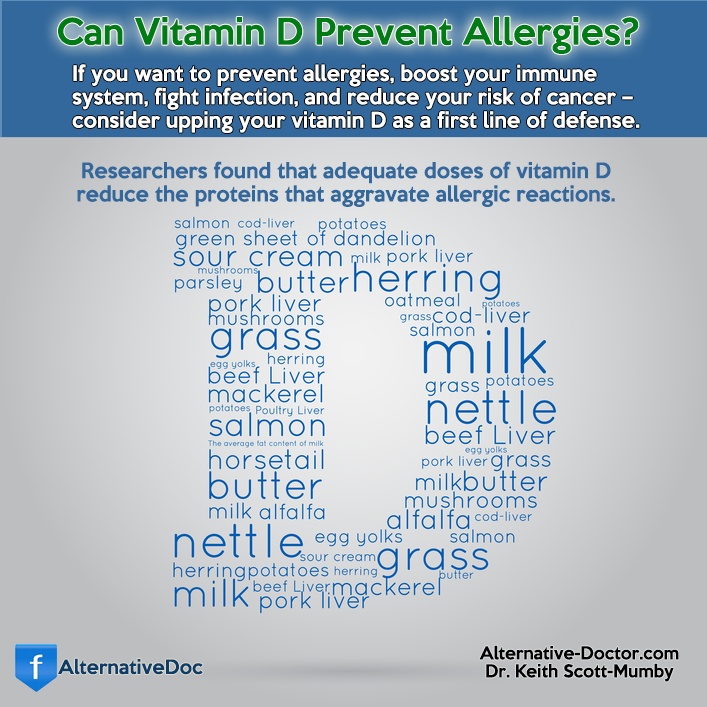Is There A Link Between Vitamin D and Preventing Allergies?
Once again, vitamin D has proven to have even more benefits than previously known. We shouldn’t be surprised at the versatility of this essential nutrient!
If you want to prevent allergies, boost your immune system, fight infection, and reduce your risk of cancer – consider upping your vitamin D as a first line of defense.
One in five people in the United States suffers from allergies or a form of asthma and more than 55% of the population tests positive for an allergen of some kind – ranging from mild to critical. Allergies rank fifth in chronic disease and a child is 33% more likely to develop allergies if one parent is allergic.
Allergies are on the rise as the world population continues to grow and the natural balance of our planet is steadily industrialized. Asthma is one of the most under-diagnosed illnesses in the world – especially in low and middle income countries.
Vitamin D and Allergies
The Journal of Clinical Investigation published a study about using vitamin D to treat allergies. Researchers found that adequate doses of the vitamin reduce the proteins that aggravate allergic response and also increase production of the proteins that promote a higher allergen tolerance.
This particular study focused on patients who suffer with asthma and their exposure to mold spores – specifically common mold known as Aspergillus fumigatus. Scientists were baffled that some asthmatics reacted more severely to mold exposure than others and set out to discover the cause.
A relationship between a rogue protein (OX40L) and vitamin D proved to be the crucial connection between some asthma patients and their allergic reaction when exposed to mold.

Vitamin D deficiency was found in the patients who exhibited a more pronounced response to the allergen. With too little of the crucial element, their bodies produced more OX40L than those patients with good levels of the vitamin in their systems. Patients with too little vitamin D also produced fewer of the proteins that protect against allergic reactions.
Those patients who were deficient were given supplements of the vitamin and the protein levels reversed positively. The study shows promise in the treatment of asthma without the harmful drugs usually prescribed – that have been the source of many asthma-related deaths.
Scientists estimate as many as 10% of asthma sufferers have more severe reactions to the drugs than the actual disease!
Dosages of 4,000-5,000 IU is safe, well tolerated by the body, and one of the least expensive essential vitamins to supplement.
Lead scientist, J.L. Kreindler, said, “Our study provides further evidence that vitamin D appears to be broadly associated with human health.”
Don’t forget your sunshine in responsible doses to boost your mood and immunity whenever possible! Fifteen minutes of exposure to your hands and face in the morning or late afternoon will bump those vitamin D levels beautifully!
[Source: Journal of Clinical Investigation, published online ahead of print, doi:10.1172/JCI42388. “Immune tolerance to Aspergillus fumigatus versus Allergic Bronchopulmonary Aspergillosis: roles of OX40L and vitamin D in humans and mice.” Authors: J.L. Kreindler, C. Steele, N. Nguyen, Y.R. Chan , et al.]
The post Can Vitamin D Prevent Allergies? appeared first on Dr. Keith Scott-Mumby.
